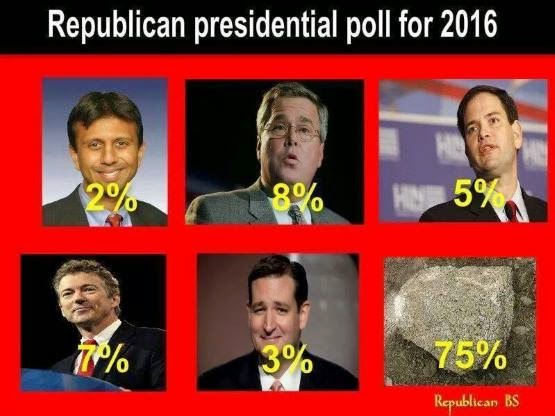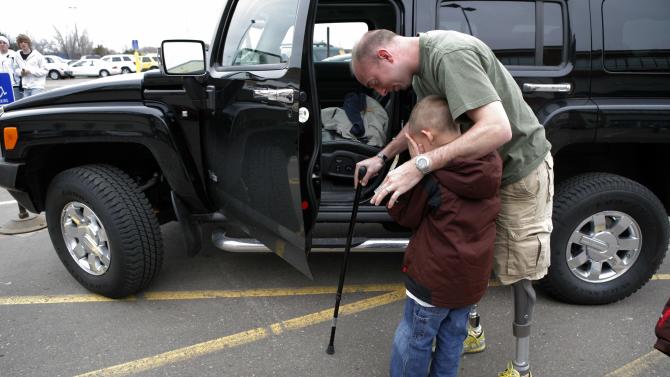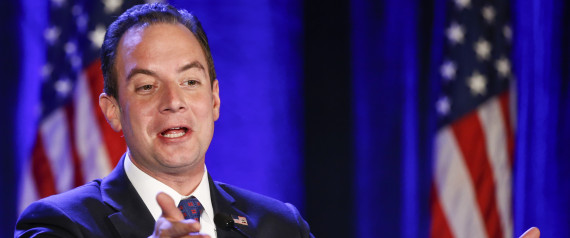The “would you have invaded Iraq” saga continues. Sunday on Fox News, Chris Wallace tried again and again to get Marco Rubio to say whether, in hindsight, the Bush administration was right to invade a WMD-less Iraq. And again and again, Rubio answered a different, and politically safer, question: Was George W. Bush right given the information he had at the time? Rubio’s answer to that question was a resounding yes. Invading Iraq, he argued, was “not a mistake because the president was presented with intelligence that said that Iraq had weapons of mass destruction.”
Rubio’s answer shows how pathological the Republican foreign-policy debate has become. The Iraq War, which I wrongly supported, has cost the United States over $2 trillion. It has contributed to the deaths of an estimated half-million Iraqis and almost 4,500 Americans, one-third more than died on 9/11. Iraq has become a failed state, large parts of which are controlled by an organization whose savagery embarrasses al-Qaeda. (Yes, part of the blame for ISIS’s rise rests with President Obama’s policies in Iraq and Syria, but it was President Bush who bulldozed the Iraqi state.) And Saddam Hussein’s overthrow has allowed Iran—a regime Republicans depict as the world’s most dangerous—to extend its power in the region.
The GOP's Iraq War Amnesia
This is what the Iraq War has wrought. Yet for most Republican presidential candidates—starting with Jeb Bush, whose maladroit Iraq answers launched the current media saga—the hard question is whether George W. Bush should have invaded Iraq given what we know now: that Saddam had no chemical or biological weapons and no nuclear program. The easy question is whether Bush should have invaded given what he thought he knew then: that Iraq did have WMD. It’s easy because, with the exception of Rand Paul, virtually all the major Republican candidates claim Bush was right.
To understand how ludicrous that position is, it’s worth remembering a few things. First, the evidence that Iraq had weapons of mass destruction was extremely weak. Yes, the U.S. government in October 2002 produced a National Intelligence Estimate that appeared to suggest Iraq had chemical and biological weapons and a nuclear-weapons program. But a 2004 Senate review concluded that “most of the major key judgments in the Intelligence Community’s October 2002 National Intelligence Estimate (NIE) … either overstated, or were not supported by, the underlying intelligence reporting.” The NIE, which was produced under intense pressure from White House and Pentagon officials seeking a justification for war, painted a far more menacing picture of Iraq’s WMD programs than had previous U.S. assessments. As the head of British intelligence famously remarked, “intelligence and facts were being fixed around the policy.” The unclassified summary of the NIE was also far more categorical than the full, classified version, which, according to Florida Senator Bob Graham, was “pocked with dissent, conditions, [and] minority opinions on a variety of critical issues.” After reading the full NIE, Graham voted against authorizing war. Unfortunately, by one estimate, only a half-dozen other senators bothered to do so.
The point is that Rubio’s depiction of Bush as a guy forced to invade because he “was presented with intelligence that said that Iraq had weapons of mass destruction” is absurd. “Since the beginning of the administration, indeed well before,” wrote Bush counterterrorism czar Richard Clarke, Donald Rumsfeld and Paul Wolfowitz—with the encouragement of Dick Cheney and Bush himself—“had been pressing for a war with Iraq.” The day after the 9/11 attacks, according to Clarke, Bush instructed him to “See if Saddam did this. See if he’s linked in any way.” When Clarke protested that “al-Qaeda did this,” Bush replied, “I know, I know, but … see if Saddam was involved. Just look. I want to know any shred.”
George W. Bush was not forced to invade Iraq because of the weight of objective evidence about WMD. He and his top advisors shamelessly hyped that evidence to justify a war they were seeking an excuse to launch. And in the hysterical aftermath of September 11, Congress was too cowed to effectively challenge them.
But even this, in some ways, misses the point. Because even if the intelligence on Iraqi WMD had been stronger, the Iraq War would still have been a colossal mistake. Let’s imagine that Bush had possessed irrefutable proof that Iraq possessed chemical and biological weapons. Those weapons would still have presented no grave threat to the United States. As Gregg Easterbrook has pointed out, chemical and biological weapons aren’t really weapons of mass destruction. “In actual use, chemical arms have proven less deadly than regular bombs, bullets, and artillery shells” while “biological weapons … have rarely done great harm.” Yes, Saddam had used chemical weapons against the defenseless Kurds and, with American assistance, to counter Tehran’s manpower advantage during the Iran-Iraq War. He had also used them to put down a Shiite rebellion in the aftermath of the Gulf War. But he had never used them against the United States, even during the Gulf War—probably because America’s response would have been ferocious. And the 9/11 Commission repudiated Bush administration claims that Saddam might have given unconventional weapons to al-Qaeda, an organization he feared and disdained.
The evidence of Saddam’s nuclear program was weakest of all. But even if that evidence had been stronger, there were still far less costly ways than invasion of responding to a country whose economic and military power had been ravaged by more than a decade of sanctions.
Rubio and his fellow GOP candidates are enshrining the idea that the correct response to potential nuclear proliferation is preventive war.
By implying that the only problem with the Iraq War was faulty intelligence, Marco Rubio implies that when the United States has compelling evidence that a hostile dictator is building “weapons of mass destruction,” the correct response is war. This represents a dramatic departure from historical American practice. In the 1940s, Harry Truman—a president Rubio admires—watched Joseph Stalin, one of the greatest mass murderers in modern history, build not just chemical and biological weapons, but a nuclear bomb. And yet Truman did not attack the U.S.S.R. In the early 1960s, John F. Kennedy, another Rubio favorite, watched Mao Zedong build a nuclear weapon, and made the same decision.
Truman and Kennedy judged that, while nuclear proliferation was bad, attacking countries that posed no immediate threat to the United States was worse. They made that judgment, in part, because earlier generations of Americans, remembering Pearl Harbor, considered preventive war—an unprovoked attack against an adversary simply because it could become a threat one day—to be immoral and un-American. And they made it because they feared that the consequences of such wars would be devastating.
In the run-up to the Iraq War, experts in and outside the Bush administration expressed the same fears. A November 2002 National Defense University report argued that occupying Iraq “will be the most daunting and complex task the U.S. and the international community will have undertaken since the end of World War II.” A collection of experts at the Army War College warned that the “possibility of the United States winning the war and losing the peace is real and serious.” White House economic advisor Lawrence Lindsey publicly mused that rebuilding postwar Iraq might cost $200 billion. He was reprimanded, then fired. And yet the White House plunged ahead.
By claiming that the United States was right to invade Iraq given what its leaders thought they knew at the time, Rubio and his fellow GOP candidates are making George W. Bush’s radical departure from past American practice the new normal. They are enshrining the idea that the correct response to potential nuclear (and perhaps even chemical and biological) proliferation is preventive war. And, not coincidentally, they are doing so while trying to scuttle President Obama’s efforts to strike a diplomatic agreement with Iran over its nuclear program.
The chances of another Bush winning the presidency may be going down. But in foreign-policy terms, it hardly matters. The toxic spirit of the last Bush presidency still thoroughly infects today’s GOP.

















